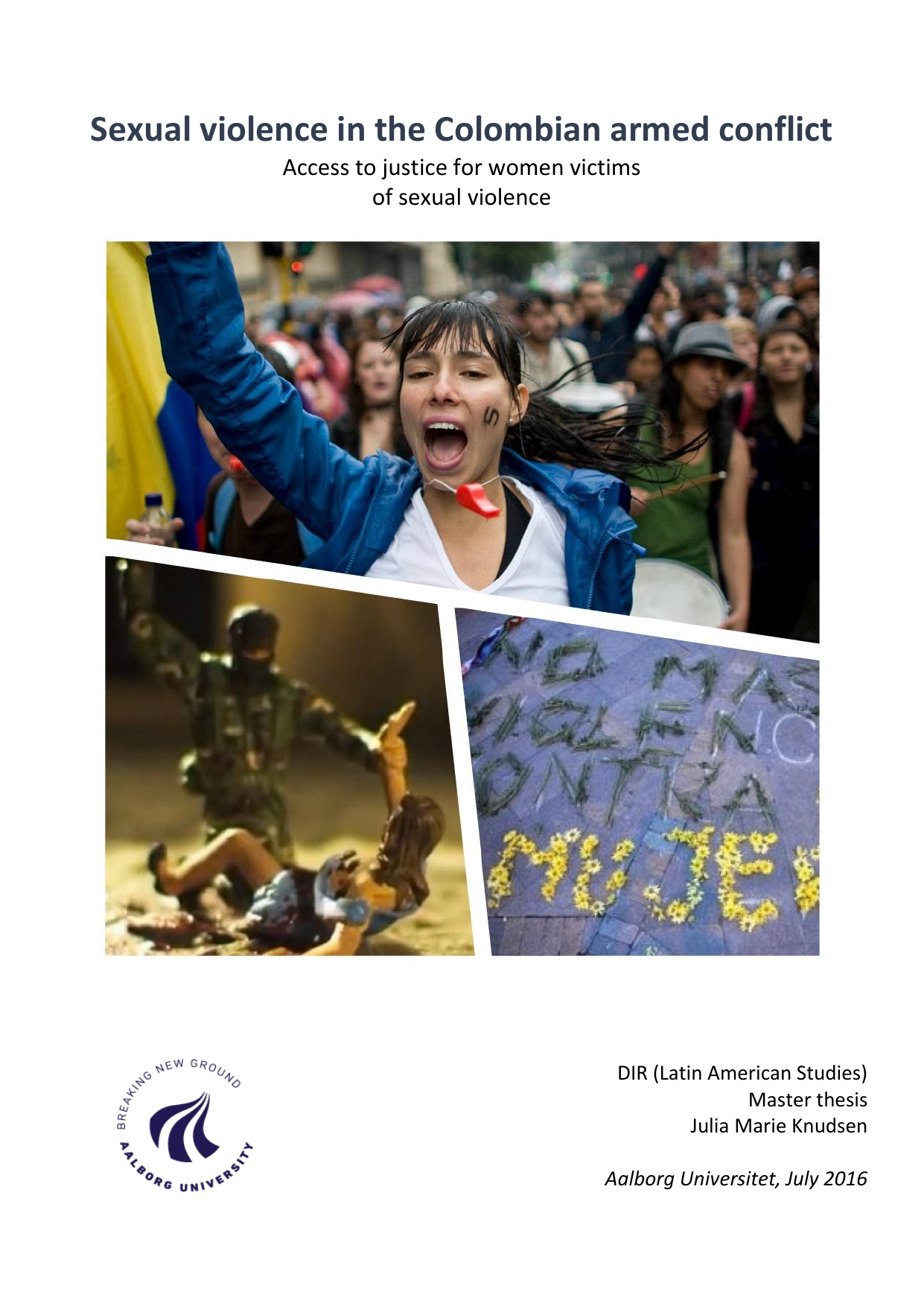
Sexual violence in the Colombian armed conflict.: Access to justice for women victims of sexual violence.
Translated title
Author
Term
4. term
Publication year
2016
Submitted on
2016-07-25
Pages
91
Abstract
Feminist academic scholarship has been highly concerned with the globally growing presence of internal armed conflict, since women and girls comprise the majority of civilian casualties and are the primary target of sexual violence committed in conflict and war. Despite the fact that the prevalence of sexual violence in conflict and war contexts has received major public attention, above all subsequent to the International Criminal Tribunal for the former Yugoslavia (1993) and Rwanda (1994), nor national neither international answers have been able to realize sufficient improvements concerning the immense impact on women and their marginalized realities in conflict and post-conflict scenarios. Particular focus has been directed towards the issue of impunity; feminist academic scholars strongly agree that the predominant response to sexual violence in conflict and war has been impunity and that guaranteeing access to justice for women victims of sexual violence has been neglected considerably. Against this background, this Master thesis studied the specific country case example of Colombia: Colombia and its society have been experiencing one of the longest armed conflicts in the whole world for the past 52 years. The confrontation between various groups of armed actors has resulted in grave Human Rights violations and violations of the International Humanitarian Law; sexual violence crimes against women among other things. According to Casa de la Mujer’s publication “First Survey on the Prevalence of Sexual Violence against Women in the Context of the Colombian Armed Conflict 2001 - 2009” (2011), 489.687 women were victims of sexual violence within the years of 2001 to 2009. In 2008, Colombia’s Constitutional Court passed the Order Auto 092 aiming at addressing the issue of impunity concerning access to justice for women victims of sexual violence. Almost eight years later, the Working Group monitoring compliance with the Order concluded that, regardless of the urgent priority that should have been given to the 183 cases of sexual violence included in the Confidential Annexes of the Auto, the level of impunity currently surpasses 97%. The research purpose of this Master thesis was to find out why impunity has persisted despite the implementation of the Order Auto 092 of 2008 passed by Colombia’s Constitutional Court. By means of a qualitative content analysis, the Monitoring Reports of the Working Group were analyzed with the objective to discover the underlying mechanisms of impunity. Based on the comprehension that Colombia’s society is characterized by pervasive patriarchal structures, this analysis was carried out in form of a feminist gender analysis that strongly focuses on women’s disadvantaged position in society and the structural violences against them.
Documents
